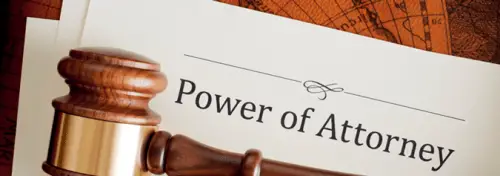In the event of incapacitation or any personal crisis, a power of attorney and a guardianship are very important legal tools that are geared toward almost the same goal. However, there are significant differences between the two.
Summary Table
| Power of Attorney | Guardianship |
| The agent (appointed person) is chosen by the principal (the one who appoints authority) | The guardian (appointed person) is chosen by the court |
| Less expensive | More expensive |
| Requires document completion by the principal and in some cases, notarization | Requires court hearings |
| Types include general, limited, durable, and springing | Guardianship may cover three specific wards: children below 18 years old, mentally disabled adults, and incapacitated senior citizens |
| The scope of power and responsibility is outlined by the principal | The scope of power and responsibility is outlined by the court |
| Main limitation: not honored by all institutions | Main limitation: the court is given the full power to assign guardianship regardless of personal preferences |
Definitions

A power of attorney, also called POA, is a legal document that authorizes an agent (the appointed person) to act on behalf of a grantor or a principal (the one who appoints authority).

A guardianship, on the other hand, pertains to a relationship that grants a guardian (a person appointed by an institution or a court) the legal rights to take care of a ward (disabled family members or minors below 18 years old).
Power of Attorney vs Guardianship
Both have one major similarity: they are legal documents granting another person a legal right or responsibility. Despite this, there is still a huge difference between a power of attorney and guardianship.
Designation
In the case of death or mental incapacity, both a power of attorney and a guardianship serve as an important legal document that gives an appointed person the right to make decisions. A power of attorney (POA) is prepared before any medical crisis. When a sudden crisis occurs, the appointed person, also called an agent, can make health or financial decisions, depending on the scope of the POA.
A guardianship, on the contrary, is designated by a court. The Guardian (the appointed person) can make decisions on behalf of minors and disabled family members.
Cost
Unlike a power of attorney, a guardianship necessitates court hearings, which can be both costly and time-consuming. A power of attorney, on the other hand, can simply be made and prepared by the principal (the one who grants power to another person). While there is no specific draft for POA’s, other states require notarization after document completion.
Types and Scope
The boundaries in terms of decision-making vary depending on the type of power of attorney granted by the principal. There are two major types of POA’s: general and limited. A general POA allows the agent to make personal and financial decisions on behalf of the principal. The limited type, on the other hand, only grants the agent power over specific aspects outlined in the legal document.
When it comes to effectivity, a POA is further divided into two types: durable and springing. A durable POA authorizes the agent to act on the principal’s behalf at present and in the future, while a springing POA would only take effect once the principal becomes incapacitated.
Moving on, a legal guardianship covers three specific wards: children below 18 years old, mentally-disabled adults, and incapacitated senior citizens.
The scope of guardianship depends on both the state and the court. While some guardians may make financial, healthcare and other personal decisions on behalf of their ward, some states appoint two guardians–one who makes financial decisions (also called conservator) and another who handles other personal affairs.
Limitations
Guardianship is granted based on court hearings instead of personal preferences. For instance, if a mentally-disabled child is left unsupervised without a POA, the court has the full power to choose a guardian regardless of the parents’ decisions.
The downside of drafting a POA, on the other hand, is also noteworthy.
Since it is not granted by a court, it may not be honored by all institutions.
Some banks don’t honor POA’s that are over 10 years old, so it’s important for principals to check their state laws and bank policies before drafting one.





